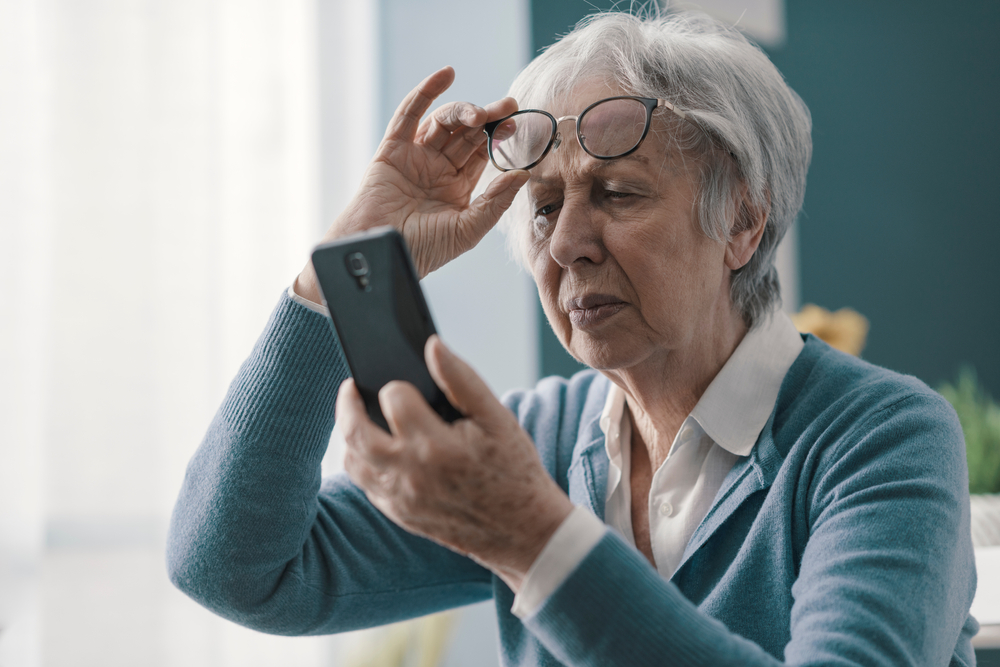Age-Related Eye Conditions: What Seniors Should Keep A Watch For

Age-Related Eye Conditions: What Seniors Should Keep A Watch For
As we get older, protecting our vision becomes more important than ever. Age-related eye conditions often develop gradually, making them hard to detect without regular care. It’s essential to understand the most common vision concerns that come with aging and how routine eye exams can help catch issues early, preserve your sight, and support your overall quality of life.
Cataracts
Cataracts occur when the eye’s natural lens becomes cloudy, causing vision to appear blurred, dim, or hazy. Seniors may notice that colors seem faded, night vision becomes more difficult, or they experience increased sensitivity to glare.
Cataracts are one of the most common age-related eye conditions and often progress slowly, which can make the changes in vision hard to detect at first. Early detection through routine eye exams is essential, as timely treatmentcan restore clear vision and prevent further complications.
Age-Related Macular Degeneration (AMD)
AMD affects the macula, the part of the retina responsible for sharp, central vision used in tasks like reading, driving, and recognizing faces. As AMD progresses, seniors may notice blurred or distorted central vision, difficulty seeing in low light, or a dark or empty area in the center of their field of vision. It is a leading cause of vision loss in older adults, especially those over 60.
While there is no cure for AMD, early detection can slow its progression and help preserve remaining vision through nutritional supplements, lifestyle changes, or advanced treatments when needed.
Glaucoma
Often referred to as the “silent thief of sight,” glaucoma damages the optic nerve without causing noticeable symptoms in the early stages. As the condition advances, it can lead to peripheral vision loss, tunnel vision, and eventually blindness if untreated.
Because of its subtle onset, glaucoma can only be detected through regular eye exams that include pressure checks and optic nerve assessments. Early intervention can help manage the condition and prevent permanent vision loss.
Diabetic Retinopathy
Diabetic retinopathy is a complication of diabetes that affects the blood vessels in the retina. Seniors with diabetes should be particularly vigilant, as this condition can lead to vision fluctuations, blurred vision, floaters, dark areas of vision, or even sudden vision loss.
Over time, untreated diabetic retinopathy can result in permanent damage and blindness. Routine eye exams are critical for early detection and timely management through lifestyle control, medications, or laser treatments to preserve vision.
Dry Eye Syndrome
Dry eye syndrome becomes increasingly common with age due to reduced tear production or poor tear quality. Seniors may experience symptoms such as stinging, burning, itching, redness, a gritty feeling in the eyes, or excessive watering as the eyes try to compensate for dryness.
While it may seem like a minor annoyance, chronic dry eye can interfere with vision and lead to inflammation or damage to the eye's surface. A comprehensive eye exam can help determine the cause and guide effective treatments, such as artificial tears, prescription drops, or in-office procedures.
Why Routine Eye Exams Are Crucial
Routine eye exams are one of the most effective tools for safeguarding your vision. Here's why:
• Early Detection: Many age-related eye conditions develop without noticeable symptoms. Regular eye exams allow your optometrist to detect changes before they impact your vision.
• Monitoring Progression: For seniors already diagnosed with a condition like AMD or glaucoma, routine exams help monitor the progression and adjust treatment as needed.
• Preserving Independence: Good vision is vital for maintaining independence and quality of life. Early intervention can help prevent or delay vision loss, making daily tasks safer and more manageable.
• Overall Health Insight: Eye exams can also reveal signs of other health issues, such as high blood pressure, diabetes, or even signs of stroke.
Protect Your Vision at Texas State Optical
Your eyes deserve the same care and attention as the rest of your health. Being proactive about routine eye exams is one of the best ways to protect your vision as you age. We’re committed to helping you see clearly and comfortably through every stage of life.
At Texas State Optical, we specialize in detecting and managing age-related eye conditions to help you maintain clear, healthy vision for years to come. Contact our office in Spring, Texas, by calling (346) 443-6500 to schedule an eye exam today.


